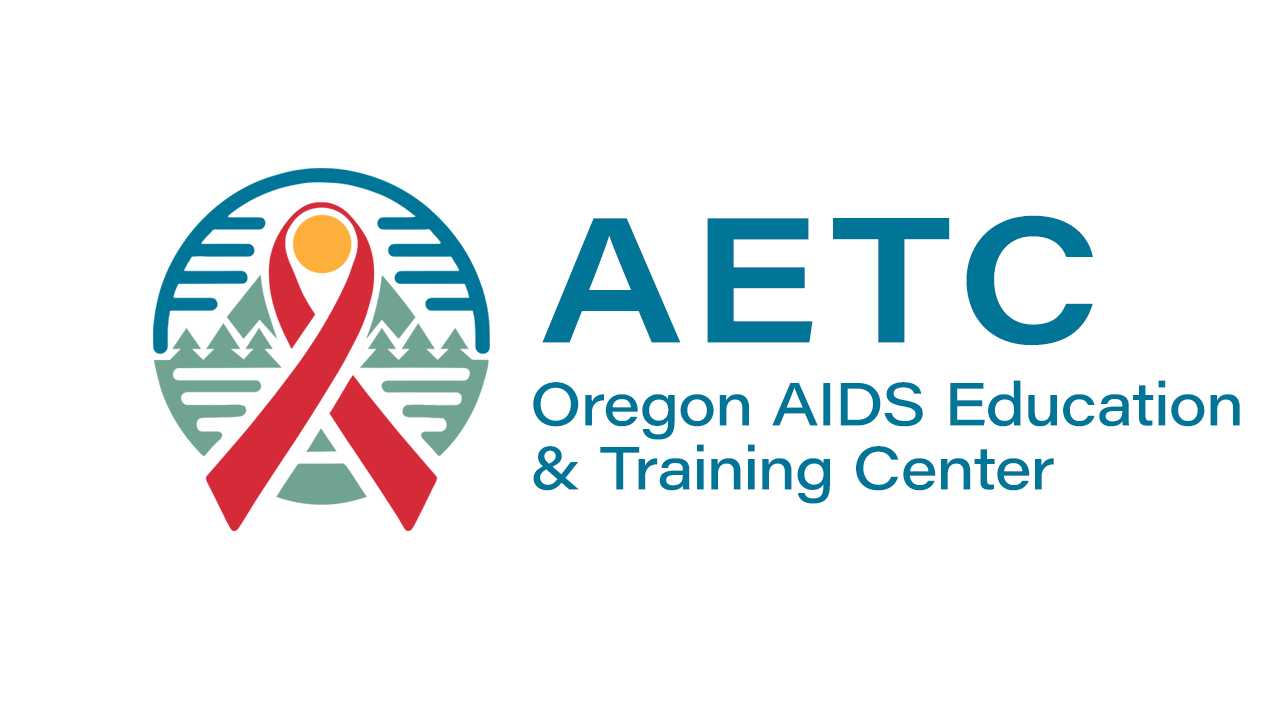Group Trainings
The Oregon AETC offers in-person and Zoom-based group trainings on several topics. Below are examples of some of the trainings we offer. All trainings are free and, with enough advanced notice, include catering and free CME. Although presented with a clinical lens, we encourage provider teams, leadership, and support staff to attend our trainings when possible. Runtimes are estimates and can be adjusted to meet audience needs.
HIV Pre-Exposure Prophylaxis (PrEP)/HIV Non-occupational Post-Exposure Prophylaxis (nPEP)
1 - 1.5 hours
This training is offered to medical providers and support staff to provide the most up to date information on PrEP and nPEP indications and implementation. Topics covered include current CDC and USPSTF guidelines/recommendations and supporting science, who stands to benefit from PrEP/nPEP, contraindications, when to practice caution, associated screenings and labs, and counseling guidance.
STI Update
1 hour
This training covers local epidemiology, clinical presentation, and treatment of common STIs in alignment with the 2021 CDC STI Treatment Guidelines.
Non-occupational Post-Exposure Prophylaxis (nPEP) Training
1 hour
This training is offered to clinicians and support staff in emergency department/urgent care settings or clinics that offer/intend to offer non-occupational Post-Exposure Prophylaxis (nPEP) as part of their practice. This training expands on some of the PEP content covered in the training above through the inclusion of education on seroconversion risk, the science supporting the recommended timeframes of effectiveness, case studies, and discussion on how PEP access can be improved.
HIV Screening, Linkage to Care, and Treatment
1 hour
This training is offered to medical providers and support staff to provide information on the history of HIV, up to date and local epidemiological trends, modes of transmission, test types and timeframes, local linkage to care and support resources, Undetectable=Untransmittable (U=U), and treatment options.
Sexual Orientation and Gender Identity Training
3 hours
This training is designed to provide clinicians and support staff with the knowledge, language, and tools necessary to improve health outcomes and address health disparities experienced by the lesbian, gay, bisexual, transgender, and queer+ (LGBTQ+) populations. This training explores a variety of topics essential to LGBTQ+ health equity including health disparities facing LGBTQ+ populations, why Sexual Orientation and Gender Identity (SOGI) matter, sexual history taking to assess risk behavior, and identifying systems level interventions to support practice change including: team communication, EHR utilization, and creating including environments.
HIV, Hepatitis, Overdose Prevention & Engagement (HOPE)
All three modules are available for delivery in a single 4-hour training.
People Who Inject Drugs (PWID) often delay seeking healthcare and underuse healthcare services overall, despite bearing a greater burden of infections from HIV and Hepatitis C. Engaging with primary care is an opportunity for PWIDs to reduce their risk of illness and death, as well as begin a pathway to recovery from substance use disorder. The HOPE training will improve the ability of attendees to address Opioid Use Disorder, manage related infections, and build rapport with PWIDs.
Module 1: Addressing Opioid Use in Primary Care (1 hour)
Module 2: Engaging Patients Who Inject Drugs (2 hours)
Module 3: Managing Infections among PWID (1 hour)
Interested in a training on a topic you don’t see here? Contact us with your request!

